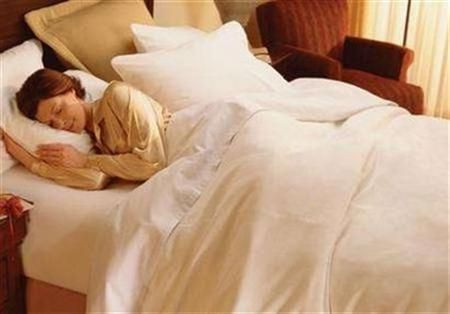Study: Sleep apnea may increase risk of gout

People suffering from sleep apnea have a 60 percent higher risk of gout, a new study reveals. In the research, which appeared in the journal Arthritis & Rheumatology, the authors sought to establish the association of the commonly diagnosed sleeping disorder to the risk of gout.
Using data from The Health Improvement Network in the UK, the researchers compared close to 10,000 patients who were newly diagnosed with sleep apnea and more than 40,000 individuals with similar weight. For each sleep apnea patient, up to five non-sleep apnea individuals were matched according to sex, age, birth year, body mass index and year of sleep apnea diagnosis.
After a year of follow-up, the team identified 270 new cases of gout, resulting in incidence rates of 8.4/1000 and 4.8/1000 person-years, respectively. This means a person with sleep apnea have 60 percent more chances of developing gout compared with someone without the sleeping disorder.
“Since sleep apnea-associated hypoxia is treatable, our findings may have both important clinical and public health implications in the prevention and management of gout,” said Dr Yuqing Zhang, the study’s lead author, who works at the Boston University School of Medicine in Massachusetts.
The team noted that future research is needed to examine the potential benefits of correcting sleep apnea-induced hypoxia on the risk of hyperuricemia and gout flares.
In December 2014, a landmark study published in the same journal revealed that gout attacks occur more often during the night and early morning than during the day. The researchers said that sleep apnea might be a factor since the associated hypoxia enhances nucleotide turnover and generates purines that can be metabolised to uric acid.
According to the study author, Dr Hyon Choi, sleep apnea affects roughly one third of obese men who have multiple comorbidities; these are also the usual gout patients. In an earlier study, Choi reported that patients with sleep apnea had a 20 percent increased risk of developing gout.
For their study, Choi and his colleagues monitored more than 700 gout patients for a year. They found that of the 1,500 acute gout attacks that the patients experienced, more than 700 occurred between midnight and 8 am. Choi said that their findings provide the first prospective evidence that the risk of gout flares is higher during the night and early morning than during the day.
Sleep apnea is a disorder that occurs when the walls of the throat come together during sleep, blocking off the upper airway. Obesity is considered one of the most common causes of sleep apnea, which leads to a fragmented sleep at nights. About 5 percent of Australians suffer from this sleep disorder, with around one in four men over the age of 30 years affected, according to Victoria’s Better Health Channel.
Gout, meanwhile, is a form of arthritis that causes pain and swelling in joints, usually in one or more joints of the arms or legs, especially in the hands and feet. The condition significantly affects around 70,000 people Australians, according to Bupa Australia. Gout is considered more common in men, particularly those aged 40 to 50, and in older people.
Contact the writer at feedback@ibtimes.com.au or tell us what you think below.





















